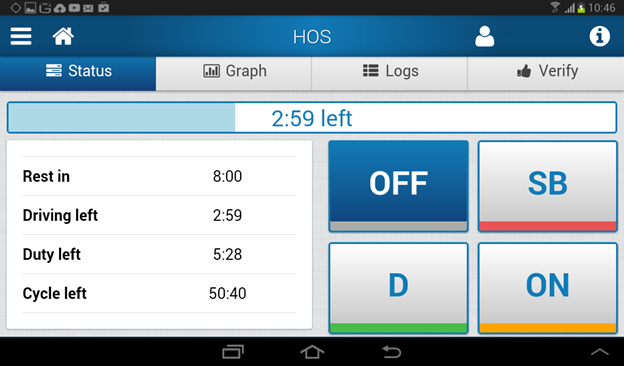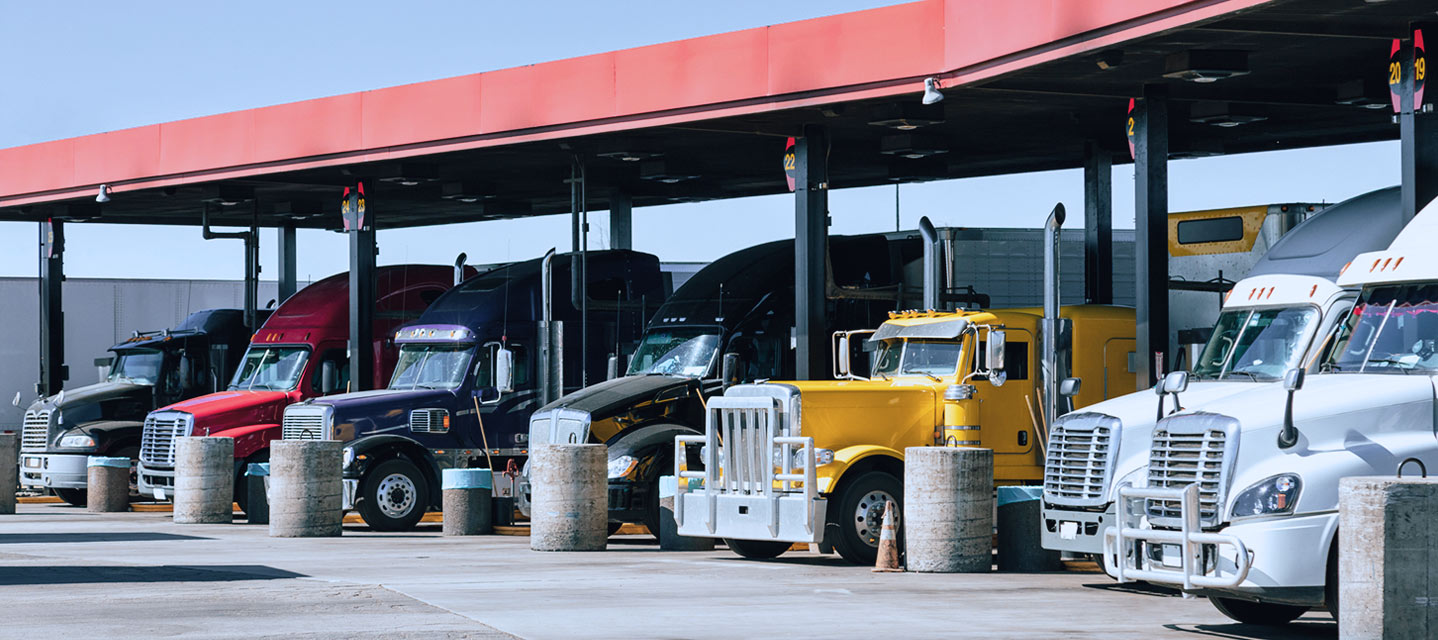Duty of care for fleet managers
One day the roads will be accident-free. But that day isn't here yet. How fleet managers can keep drivers safe while complying with duty of care laws.

Vice President, South Western Europe at Geotab
Dec 29, 2015
Updated: Mar 8, 2023

Innovation is changing the whole transportation industry. Uber has disrupted the way we move in a city. Google and some OEMs are actively developing autonomous vehicles that will take us from one place to another without human interaction. Amazon has patented an algorithm that predicts which products are going to be requested, so delivery vans can carry them to their destination before the order is even placed. Vehicle-to-vehicle (V2V) communications and other Advanced Driver Assistance Systems (ADAS) are being designed for the exchange of safety critical information in real time to avoid collisions.
Transportation is becoming faster, safer, more efficient, and easy to use. One day the roads will be accident-free. But that time has not arrived yet, and nowadays companies using vehicles (which is virtually every company) need to protect their most valuable assets — their drivers.
This article reviews legislation related to duty of care and outlines five specific ways that Geotab helps managers keep drivers safe while complying with the law.
Legislation Governing Drivers At Work
Companies with drivers on the road are conscious of the negative consequences of accidents and try to mitigate the related risks. The improvement of driver behavior saves lives and reduces injuries, but also has an impact on the profitability of the company by lowering insurance premiums, tickets, and vehicle repairs. Due to the serious impact of traffic fatalities worldwide, some countries are proactively approving laws to enforce companies to take the right measures. These measures typically limit windshield time, enforce compliance with road signals, and foster vehicle inspections.
In the U.S., Hours of Service (HOS) regulations are issued by the Federal Motor Carrier Safety Administration (FMCSA) and govern the working hours of commercial motor vehicle (CMV) drivers. Moreover, the FMCSA recently released the final rule on electronic logging devices (ELDs) in all commercial trucks is currently under revision by the White House.
In the European Union, Regulation (EC) 561/2006 provides rules for driving time, breaks and rest periods required requirements for drivers of goods (vehicles with more than 3.5 tonnes) or passenger vehicles (more than 8 passenger seats) within the EU.
One of the countries with more advanced initiatives in this field is the UK. Companies with fleets have a duty of care, regulated by the Health and Safety at Work Act 1974 and the Corporate Manslaughter and Corporate Homicide Act of 2007. Employers have a legal obligation towards their workers in minimizing risk. Companies need to comply with duty of care obligations to ensure that their drivers are safe on the roads. This means that if a driver causes an accident that could have been avoided by certain policies enforcement, the company could be prosecuted and subject to possibly unlimited fines.
Related Reading: “Finance in Focus: Telematics and its effect on the insurance industry,” IBM Big Data & Analytics Hub
Managing HOS or Duty of Care Obligations with GPS Fleet Management
There are several ways with which a company can address their duty of care obligations, including risk assessments, disciplinary measures and extra training to their drivers. These measures can certainly have positive effect, but employers who want to bring safety to the highest quotes promote the use of most-advanced telematics systems. Geotab is a unique solution that has been designed with safety features at its core, with proven results reducing drastically the number of accidents.
Traditional telematics solutions record location, driving times, patterns and routes, and provide a logging system to ensure timetables are met. This was also the starting point for Geotab when the company began 15 years ago in this industry. Our continuous effort in R&D and innovation has enabled Geotab to take duty of care compliance to the next level.
Five Reasons to Use Geotab for Duty of Care Compliance:
1. Mobile App for monitoring accurate driving times. It is not enough to simply measure and report drive times. A fleet management solution should be able to inform your drivers about their hours and alert them when they are about to break driving hours rules. The Geotab Drive app for Android and iOS phones and tablets helps drivers take full control of their time and schedule their stops accordingly.

Figure 1. Geotab Drive Mobile App.
2. Advanced driving behavior monitoring. The motor insurance industry has demonstrated that there are driving patterns that have a high impact on risk beyond mileage and overspeeding. Geotab helps identify bad driving habits, so they can be addressed directly with the driver before they become a problem.
- Harsh acceleration/braking/cornering indicates a dangerous driving style and usually indicates that the driver is not keeping an appropriate distance with the vehicle in front. Geotab provides scientific values for triggering those events, taking into account if the vehicle is a car, van or a truck.
- Reversing at the beginning of the trip. Safety associations estimate that almost 25% of accidents result from reversing a vehicle. Read why reverse parking is better in this blog post.
- Seatbelt usage. The severity of an accident is incredibly much higher if drivers do not wear seatbelts. Although a difficult undertaking, Geotab invests a lot in getting seat belt buckled information from a vast variety of makes to ensure this information is accurate.
3. In-cab verbal coaching. Fleet managers can improve driver behavior by discussing bad habits with drivers using reports from the system. However, using spoken feedback to coach drivers while they are on the road is even more powerful. The Geotab GO TALK accessory can relay predefined and customizable messages when drivers are performing poorly in any of the variables discussed above.
4. Maintenance, vehicle inspection, and proactive alerts on engine faults. The status of the vehicle parts, especially brakes, tires, and safety elements, is an important factor in driver safety and compliance. Geotab offers a complete and flexible maintenance system including service reminders and proactive alerts of engine faults and maintenance issues like battery drain, coolant temperature, oil level, engine warning light on, and more.
5. Expandability. The new Geotab Marketplace offers a variety of solutions from different partners that allow Fleet Managers to add more safety features to the core solution. For example, the Mobileye collision avoidance system warns drivers of impending collisions, unsafe lane changes, or following too close with visual and audible alerts.
Keep your drivers safe and simplify compliance at the same time with Geotab. Our fleet management software platform has been designed to give full control to customers while keeping the user experience simple and intuitive. Do you want to know more? Please contact us!
Related Posts:
Taking a Look at Geotab Drive, Stephanie Voelker
Subscribe to get industry tips and insights

Vice President, South Western Europe at Geotab
Ivan Lequerica is a Physicist and Electronics Engineer PhD who has contributed to the development and implementation of Geotab’s European business and engineering strategies since he joined the company in early 2015.
Table of Contents
Subscribe to get industry tips and insights
Related posts

9 strategies to increase fleet fuel efficiency and lower fuel costs
July 8, 2025
4 minute read

Enhancing winter road maintenance with postseason materials usage analyses
June 20, 2025
6 minute read


CARB compliance made easy: 10 ways Geotab simplifies emissions reporting
May 12, 2025
1 minute read


IRS mileage log requirements for 2025 [free downloadable template]
May 2, 2025
5 minute read